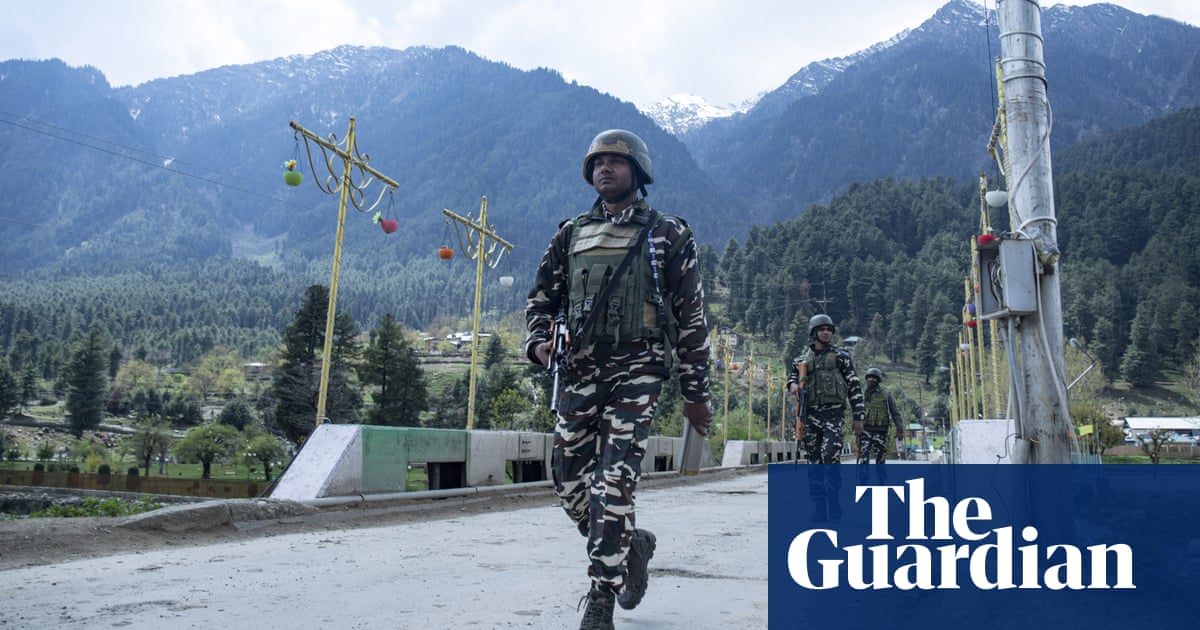Britain’s system for controlling arms exports is broken, subject to political manipulation and has seen conduct that crossed the threshold into complicity with war crimes, a former UK diplomat has claimed.
Writing for the Guardian, Mark Smith, who resigned from the Foreign Office in August, said officials were instructed to manipulate findings on the misuse of UK arms by allies, and if they did not do so, their reports were edited by senior colleagues to give the impression that the UK was in compliance with the law.
Appealing to serving Foreign Office officials to end their cooperation with a broken process, he wrote: “What I witnessed was not just moral failure but conduct that I believe crossed the threshold into complicity with war crimes.
“The British public deserves to know how these decisions are made behind closed doors – and how systemic dysfunction enables the government to perpetuate harm while shielding itself from scrutiny.”
He also said his efforts to raise his concerns were blocked, and he was ordered not to put his concerns in writing in case they became subject to freedom of information requests.
Smith served as a Middle East desk specialist adviser on arms sales, and subsequently moved to serve as a second secretary at the UK embassy in Dublin.
He wrote: “The Foreign Office’s handling of these issues is nothing short of a scandal. Officials are bullied into silence. Processes are manipulated to produce politically convenient outcomes. Whistleblowers are stonewalled, isolated, and ignored.”
Although much of his criticism is directed at the last Conservative government concerning arms sales to Saudi Arabia for use in Yemen, and arms sales to Israel, Smith did not absolve Labour. He welcomed the UK ban on arms exports to Israel in September, but since then, he said the government had stood by as Israel continued to commit war crimes.

The UK last September banned sales of arms for use in Gaza, but exempted all parts for the F-35 jet programme, a carve-out that is now subject to full judicial review. UK laws state that the government will not issue export licences “if there is a clear risk that the items might be used to commit or facilitate a serious violation of international humanitarian law”. The Foreign Office still insists it has not been able to conclude that Israel’s bombing of Gaza breached international law.
Possibly the most significant of Smith’s allegations is the claim that officials had demanded the toning down of evidence that UK arms had been used to commit war crimes, which would be a clear manipulation of what is intended to be an objective evidence-gathering process.
Smith wrote: “The most egregious example of this manipulation occurred during my work on arms sales to Saudi Arabia amidst its military campaign in Yemen. The UK government was fully aware that Saudi airstrikes were causing massive civilian casualties.
“In a high-level meeting with senior officials, including legal advisers and the Queen’s Counsel, it was acknowledged that the UK had exceeded the legal threshold for halting arms sales. Yet instead of advising ministers to suspend exports, the focus shifted to finding ways to ‘get back on the right side’ of the law.
“Rather than confronting the illegality, officials resorted to delaying tactics – extending reporting deadlines and demanding additional information that was unnecessary. This ‘wait for more evidence’ approach created a loophole, allowing arms sales to continue while the government feigned compliance.
“I raised my concerns repeatedly, only to be overruled. One of my colleagues, equally troubled by what we were witnessing, resigned over the issue. I soon followed.”
after newsletter promotion
Smith wrote that the endorsement of UK arms sales to Israel between October 2023 and September 2024 was even more shocking: “Israel’s repeated bombardments of Gaza have killed thousands of civilians and destroyed vital infrastructure, actions that are blatantly incompatible with international law. Yet the UK government continued to justify arms sales to Israel, relying on the same flawed processes and evasive tactics.”
He said from the UK embassy in Ireland – a country that strongly backs a Palestinian state – he sought answers from the Foreign Office headquarters about the legal basis for arms sales to Israel, and was “met with hostility and stonewalling”.
“Emails went unanswered. I was warned not to put my concerns in writing. Lawyers and senior officials bombarded me with defensive instructions to ‘stick to the lines’ and delete correspondence. It became clear that no one was willing to address the fundamental question: How could continued arms sales to Israel possibly be legal?
“I followed every internal procedure available to me to raise my concerns. I engaged the whistleblowing team, wrote to senior officials, and even attempted to contact the foreign secretary directly. At every turn, I was met with delays, obfuscation, and outright refusal to engage. It became clear that the system is not designed to hold itself accountable – it is designed to protect itself at all costs.”
Smith’s evidence may prove material in the case being mounted by human rights groups over the continued sale of parts for the F35s that are sold to Israel and can be used in Gaza.
A Foreign Office spokesperson said: “These allegations are a misrepresentation of this government. Our export licence controls are some of the most robust in the world and are strictly guided by legal advice. As soon as the foreign secretary took office, he ordered a review into Israel’s compliance with international humanitarian law and on 2 September, we suspended export licences to Israel for use in military operations in the Gaza conflict.”
The Foreign Office said it could not comment on individual cases, but had an established process for handling internal concerns.

.png) 2 months ago
29
2 months ago
29













































